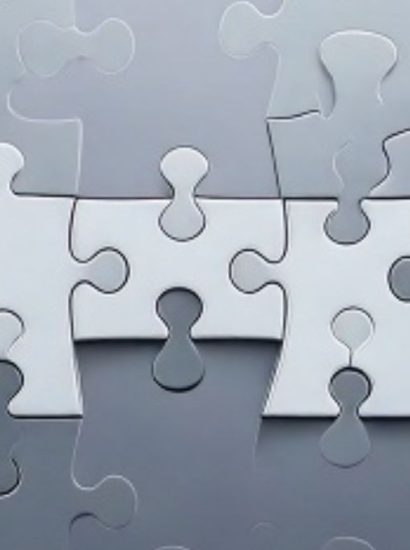This post is also available in: ΕΛΛΗΝΙΚΑ (GREEK) TÜRKÇE (TURKISH)
The first telephone conversation between Trump and Putin, the contents of which was made public in broad terms, caused panic among the western allies and altered plans from East to West.
A ninety minute cyclone from Washington to Moscow, placed the EU and NATO ‘under house arrest’, and made the once eruditeleaders look like cartoons seeking solutions that would not inconvenience them. The first lull in the storm has brought to the surface three major issues.
As soon as it was announced that the American ‘drug dealer’ Mark Fogel had left the Russian prison following a ‘recommendation’ and arrived at the White House, it became clear that the heavy gates that separated Washington and Moscow in recent years had been opened, although nothing about a communication between Trump and Putin had become known. However, the next day, Donald Trump himself announced that he had communicated with Putin, underlined that ‘peace in Ukraine was not far off’ and repeated that ‘the war would not have happened if he had been president at the time, but now it must end before more lives are lost’. He also revealed that he and Putin had discussed the Middle East, energy, artificial intelligence, the strength of the dollar, as well as other matters of strategic importance and agreed to exchange visits. At the same time, in a gesture of equal importance as the release ofFogel, Washington released Alexander Vinnik (Mr Bitcoin), who had been arrested in 2017 in Greece and had been extradited to the US authorities in 2020.
Trump, being well-prepared, seized the bull by the horns and spoke –to a mainly Russian audience- about a ‘historic partnershipbetween the countries during World War II’, and said that he and Putin had agreed to work together closely, with reciprocated visitsto each other’s countries, and to begin immediately negotiations for the end of the war! Without delay, Trump informed Zelensky in detail about his call to Moscow and told him that he would be visited shortly by the US Treasury Secretary, as indeed occurred. The fact that Trump announced that he and Putin would immediately begin talks to end the war, increased Zelensky’s panic, who, following the 500 billion invoice given to him by the US President, was now more or less being told that he would not have a say in the talks for the end of the war, and that he would not get back the territories he had lost, and who knows where he would end up in his defeat. But the worst thing for Zelensky is that in these circumstances, Putin, from being a ‘war criminal’ -as he was described- would now become once again the tsar of the other superpower who, together with Trump would dictate the fate of the planet.
Indeed, Trump revealed that President Putin had adopted his own pre-election slogan ‘Common Sense’. He went further to state that would like Russia to return to the G7: ‘Russia was a member of the G7 (then known as G8) until it was thrown out after the annexation of the Crimea in 2014. ‘I would like them to come back. I think it was a mistake that we threw them out. Look, the issue is not whether you like Russia or not. It was the G8’. President Trump went a step further declaring that he would like there to be a conference with Russia and China in order to discuss defence spending and nuclear disarmament, noting that ‘there is no reason’ to manufacture nuclear weapons! He added that he was considering a summit meeting with the presidents of Russia and China ‘when things settle down a bit’!
Under the weight of the White House statements, the Ukrainian president replied that he would not accept any bilateral agreementsabout the future of his country arrived at by Moscow and Washington in the absence of Kiiv, stressing that they must agree withWashington on a plan ‘to stop Putin’ before any peace talks begin with Moscow. Zelensky was supported verbally by the head of European diplomacy, Kaja Kallas, who stated that ‘any agreement without Ukraine and Europe is bound to fail’.
Clearly, once again common sense dictated to Volodimir Zelensky his first statements after the announcement that Trump had spoken with Putin. He said that he had spoken for an hour with Trump on the telephone and discussed ‘the possibilities of achieving peace’ in his country and that ‘together with the US we are tracing our next steps to stop Russian aggression and secure a lasting and reliable peace’. Meanwhile, at the White House, Trump had already told the press that there would be a ceasefire in Ukraine ‘in the not too distant future’.
However, immediately after the first Trump announcement, Zelensky deemed it useful to describe as ‘substantive’ his conversation with the US President, clarifying that they had discussed the drawing up of a document in connection with the cooperation between the two countries in the areas of security and the economy, and ‘revealed’ that at his talks with US Treasury Secretary Scott Bessent they had discussed a possible agreement on Ukrainian mineral ores.
However, the US President said that the first meeting with Putin would take place in Saudi Arabia and without beating about the bush, he said that Ukraine’s accession to NATO – which Kiiv seeks- is a red line for Moscow and would not be ‘realistic’. RegardingZelensky, he was even harsher, stating that: ‘At some point there would have to be elections in Ukraine. If military law had not been imposed in February 2022, which prevents the holding of elections, the presidential election would have taken place in March 2024’, implying in effect that Zelensky has no legal standing.
In these circumstances, EU and NATO seem to be suffering from vertigo as a result of the cyclone caused by the stifling tango between Trump and Putin. Indeed, from Brussels, where he attended a meeting with his counterparts, US Defence Secretary Pete Hegseth judged as unrealistic the prospect of a return to the pre-2014 Ukrainian borders, that is to say with the Crimea passing into Ukrainian territory. He also stated that the European countries must in future contribute the largest share of aid to Ukraine and noted that a possible development of a peacekeeping force could not be done under the auspices of NATO.
The rage of the European state armament interests was expressed by Germany’s Defence Minister Boris Pistorius who said ‘It isregrettable that Donald Trump has made concessions to Vladimir Putin about Ukraine before the start of negotiations. Russia will remain a threat to Europe’s security even if a peaceful solution is found for Ukraine. We must therefore invest more quickly in our defence since peace dictates that this can be secured from a position of strength’, said the German Minister at the NATO conference of ministers.
Based on the above, from now on there will be three major issues that will concern the citizens of the planet during its governance byTrump and Putin:
- How long would a possible partnership between Russia and the US last and what would be the results?
- When will the ‘hydrocephalic’ state in Brussels, which is already showing signs of wear and tear, become modernised?
- When will the great showdown between East and West for supremacy in the vast Euro-Asiatic market begin, that has been delayedonce more with China keeping its distance for now…
This article was originally published on 16.02.2025






